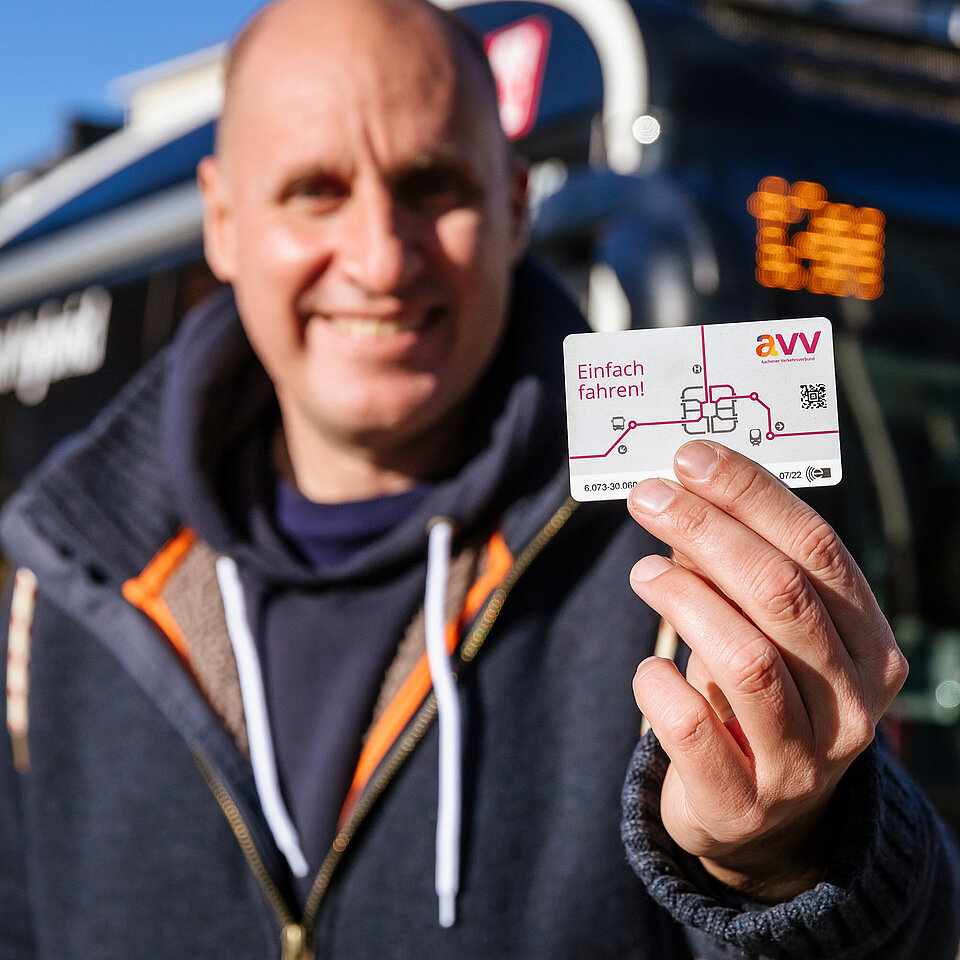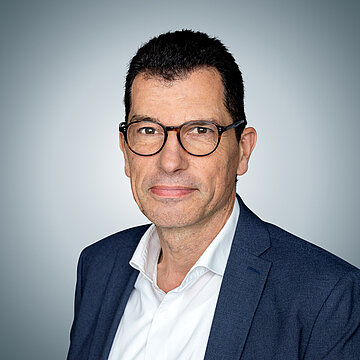Germany ticket: a successful model with challenges
A ticket that rethinks local public transport

The Deutschlandticket has developed an enormous reach. In the VRS and AVV, the ticket has long been part of everyday life - a clear success for the idea of a nationwide local transport ticket. At the same time, it is clear that reliable political and financial framework conditions are needed to secure this success in the long term.
Great demand in the VRS and AVV area
The Deutschlandticket has been valid on buses and trains throughout Germany since May 2023: simple, digital and at an attractive price. The response has been great, and the offer is also in high demand in the region. Every month, over 800,000 people in the Rhine-Sieg transport association (VRS) use the ticket. The Deutschlandticket is similarly popular in the Aachener Verkehrsverbund (AVV) area, where almost 160,000 people use it.
In the VRS, almost one in four Deutschlandtickets is already a job ticket (24%). Nevertheless, the associations see further potential, particularly among state employees:

"We appeal to the state to finally create the necessary legal framework so that state employees can use the Deutschlandjobticket."
The Deutschlandticket has also established itself among young people: Around 122,000 students in the VRS use it as a semester ticket, while a further 156,000 school pupils benefit from the Deutschlandticket Schule. In the AVV, there are 56,500 students and 50,000 schoolchildren.

"The figures from the VRS and AVV areas show impressively how firmly the Deutschlandticket is anchored among young people in particular. With over 380,000 pupils and students regularly using the ticket, it has long been more than just a fare offer - it is a central component of their everyday mobility."
Cheap alone is not enough: local transport needs more services
The Deutschlandticket has significantly simplified access to local public transport. However, a low price alone is not enough to encourage more people to switch to public transport in the long term. It is crucial that the service grows with it: more connections, more frequent services and better access to rural areas are key prerequisites for a successful mobility transition.
Financing remains a key challenge
Popular, but cost-intensive: without the compensatory funds from the federal and state governments, the current price of 58 euros would not be sustainable. In the VRS area alone, there will be a funding gap of around 275 million euros in 2024, and a similar deficit is also on the horizon for 2025. The NRW state government is fundamentally committed to the Deutschlandticket. However, more is needed to secure it in the long term - stable and reliable funding.

"The Deutschlandticket offers passengers easy access to local transport and breaks down the boundaries between public transport networks. The aim of the federal government must be to put its financing on a solid, sustainable and, above all, long-term basis together with the federal states. This is the only way to secure funding in the long term and keep the price of the Deutschlandticket attractive for passengers."
Revenue clearing: fairer equalization through stage two
An important step towards greater fairness in the distribution of revenue: Since July 2025, the VRS and AVV have been part of the second stage of nationwide clearing. Revenue from the Deutschlandticket is now distributed according to the user's place of residence (zip code) - a much fairer system. Operational implementation is carried out by D-TIX GmbH & Co KG at federal level and the Competence Center Marketing NRW for state-wide clearing. In a third stage, the revenue from the Deutschlandticket will also flow to where the ticket is actually used.
The future of the Deutschlandticket remains challenging
The Deutschlandticket remains a successful model - but the future is not a foregone conclusion. In the second half of 2025, decisive decisions will have to be made: The federal and state governments are negotiating on a time limit and a dynamization of regionalization funds. One thing is clear: The ticket can only continue its success story if the price, funding and offer are compatible in the long term.